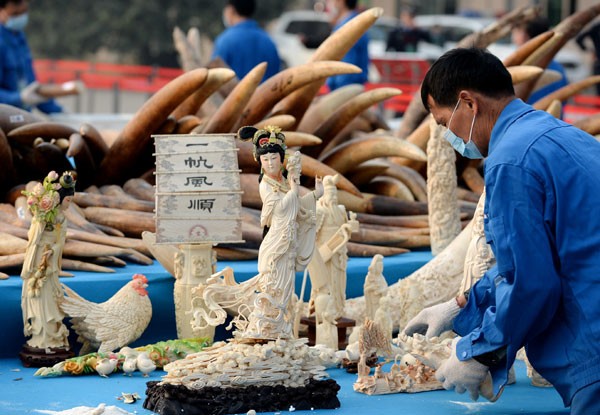Effective on Feb. 26, Thursday, China has imposed a one-year ban on the importation of carved ivory products made after July 1975, as announced by China’s State Forestry Administration.
The wildlife watchdog said that the affected ivories are those acquired after the signing of the Convention on International Trade in Endangered Species of Wild Fauna and Flora.
Meng Xianlin, the executive director-general of China's Endangered Species Import and Export Management Office, said that the import ban "shows China's commitment to curbing the illegal ivory trade and to protecting African elephants."
According to Meng, there are only four sources of legal ivory: the international legal ivory stockpile auctions, the ivories obtained via legal trophy hunting, those acquired before the year 1975, and the legal ivory-carved products obtained after that.
"The one-year term will also provide time for us to observe and evaluate the actual effect of this act on the elephants," Meng added.
China has long been earning the ire of wildlife advocates for being the world's largest ivory importer. The country is also blamed for the poaching of native African elephants.
On the contrary, recent figures from the government show that there has been a significant decline in the ivory market statistics, both legal and illegal.
From 2013, the number of wildlife smuggling cases decreased by 70 percent. Moreover, an 80-percent drop in the use of legal ivory for carved items has also been recorded in the past years.
Meng also emphasized that according to their investigation, "the scale of illegal ivory production is way smaller than legal production."
Meanwhile, John Scanlon, the secretary-general of the CITES organization's secretariat, lauded China's efforts to combat the illegal use of ivory.
"China has been dealing with it responsibly as a destination country, showing great leadership through customs and other enforcement departments," he remarked.
Scanlon also pointed out that protecting such endangered resources is not China's responsibility alone. He directed all countries involved, from the source to the transit and destination areas, to partake in this advocacy.



























